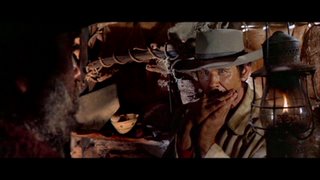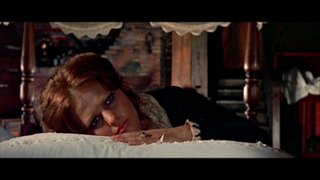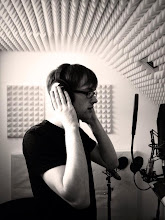Favourite films- SERGIO LEONE'S 'ONCE UPON A TIME IN THE WEST'
 Directed by Sergio Leone
Directed by Sergio LeoneProduced by Bino Cicogna
Written by Dario Argento, Bernardo Bertolucci and Sergio Leone (Story)
Sergio Donati and Sergio Leone (Screenplay)
Starring Charles Bronson
Claudia Cardinale
Henry Fonda
Jason Robards
Distributed by Paramount
Release date(s) 1968
Running time 165 min
Language English

What makes Once upon a time such a great film and one of my favourites of all time is not just because of the gorgeous cinematography, the legendary Ennio Morricone score with the main characters having their own leitmotifs. It is the originality of the film in its casting. The film is like a panoramic painting with the characters deliberately vague. It’s difficult to pull off in films, only Sergio Leone made it with such success.

Stemmed from this, is the fact that it has such a strong female lead. It is uncommon in the western genre and it’s what makes the film feel fresh and un-Hollywood. It gives the film a different perspective than contemporary westerns of the time. But the most talked about is the casting of Henry Fonda as the killer gunman Frank who was up to that point seen as a righteous leading man. It is played with such precision and weight that he creates one of his most iconic characters and one of the greatest villains ever brought to the screen. Then there is Charles Bronson, never without his harmonica. He plays his harmonica when he should talk, and talks when he should play. This is his finest performance. Successfully Leone carefully reveals the cruelty and ruthlessness of the characters even in the most heroic ones.

The film does have a flaw, but it is easily forgettable. The film has quite a thin narrative, but makes up for it in layers of meaning. For example, the film is as much about revenge as it is about money and the American dream. The American dream is represented in one image, the painting of the Ocean that hangs on the wall of the wealthy railroad baron, Morton’s train. It reflects the character in which he only dreams of getting away to the pacific and not of the many people who get killed because of his orders.

The imagery is one of the main highlights of Once upon a time in the west. You will finish the film with your head full of beautiful images of the west. The film has some of Leone’s greatest shots, especially a crane shot that reveals a bustling growing town. In one shot it shows the growth of America, and the changes of that time period. It was surely an epic shot back in the 60’s and it still stands up today.

The action in the film is brutal but quick. Sergio Leone, as he does in most of his films, prefers to focus on the build up to the violence. When the violence does come it feels like a release from the tension and it affects the viewer more so then just showing a lengthy violent scene. The final showdown between ‘Harmonica’ and Frank is surely the highlight of the film. Sergio Leone uses flashbacks to finally reveal their pasts and when it’s revealed everything suddenly makes sense and there is a great emotional undercurrent in the scene. But as soon as the flashback ends, gunfire is heard. An emotional marrying of flashbacks, great acting, epic shots and a beautiful score accompanied with stylish vistas makes this scene, and the film, legendary.
Not even Clint Eastwood’s final farewell to the western with Unforgiven has a western been so confidently and beautifully made then this. Sergio Leone was a master with the genre and will probably never be bettered. He had a command of the medium that not many directors have managed to obtain since.



1 Comments:
Shit man, you have good taste.
A huge comment made by Sergio with this film that you hinted at is the shift from the 'wild' west, dominated by man and their fighting, to the 'beginning to be tamed' west where the female matriarchal role becomes the relevant one. The men in the movie may play critical roles, but it is the central female character that is left standing at the end taking the west into the future, whilst the fighting men limp off, their usefulness played out.
And yes, excellent score.
It also features a killer line:
'We brought one horse too few',
'No, you brought two too many'.
Post a Comment
<< Home